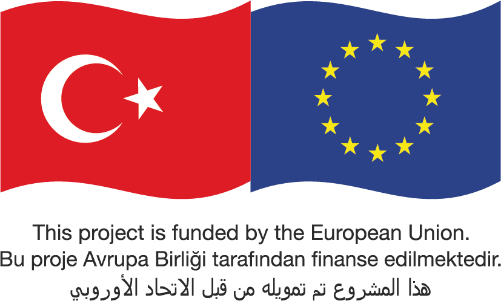VET4JOB – Improving the employment prospects for the Syrian refugees and host communities by high-quality vocational education training (VET) and apprenticeship in Turkey

Objective
-
€30mBUDGET
-
01/01/2020PROJECT START
-
48 monthsDURATION
The civil war in Syria has created a humanitarian crisis which started 9 years ago, causing Syrian populations to flee the country. In 2019, Turkey hosted more than 3.6 million Syrian refugees. As they are likely to continue to reside and live in Turkey, both young individuals and adults need to improve their livelihoods and employment prospects to better integrate with the host country. It is of the utmost importance for Turkey to handle this issue with an integrated strategy, including a long-term perspective to cover the basic service areas such as economy, working life, social and cultural cohesion, education, health and shelter. This may be achieved by gradually shifting from emergency and humanitarian assistance to development support with a focus on inclusion and economic self-reliance.
The VET4JOB programme works alongside the Ministry of National Education and the Confederation of Turkish Tradesmen and Craftsmen to provide training activities for young people and adults from the Syrian refugee and Turkish communities. The programme aims to develop their skills through apprenticeship and vocational education training, in line with the needs of the labour market. On one hand, the activities offered will make it possible to strengthen social cohesion among the groups; on the other, developing skills via apprenticeship will fully support the eradication of child labour, through a national communication campaign.
VET4JOB has three specific objectives:
1) Strengthen the economic resilience of Syrian refugees and Turkish communities through apprenticeship and vocational trainings;
2) Promote improved apprenticeship system in Turkey to eradicate child labour;
3) Facilitate the social and economic integration of Syrian refugees with the host country, Turkey.
VET4JOB’s strategy

The implementation approach of the VET4JOB programme is based on strong alignment with national institutions, schemes and policies in order to strengthen the national system and favour local economic development, while focusing on the specific situation and needs of beneficiaries and refugees.
Framing phase
First of all, a framing phase is being conducted to establish the framework for dialogue between stakeholders on the issues of apprenticeship, vocational education training and formal employment. The programme will rely on in-depth knowledge of the field and take into account the existing institutional structures to develop them by cooperating with the relevant authorities.
Implementation phase
The finalization of the framing phase will allow the programme to start the implementation phase. All along this phase, the programme will seek to reach vulnerable populations and encourage girls and women to participate in the activities, by providing necessary support systems. The programme activities will be continuously monitored and evaluated so as to adapt them to developing circumstances by taking into account the impact of the Covid19 pandemic as well as the needs of the main target groups.
Developing skills, raising awareness and strengthening social cohesion
VET4JOB is structured around three areas of operation to reach the objectives of the programme:
1) Developing relevant vocational skills and providing certification to Syrian refugees and the host community
• Provide vocational education training through apprenticeship to individuals between 14 and 17 who want to establish their own business in the future, and enable them to receive the mastership certificate required to start their own business
• Equip both Syrian and Turkish communities with the necessary vocational skills to benefit from formal employment opportunities
2) Raising awareness of the public and private sectors about child labour eradication and apprenticeship opportunities and improving the capacity of national bodies to fight against child labour and deliver quality vocational training
• Promote apprenticeship as a strong option of formal education and highlight its short-term and long-term benefits for students, families and the private sector
• Encourage participants to be part of formal employment through post training courses such as career guidance, job seeking coaching and business start-up mentorship, etc.
• Raise awareness in target groups and among the public on the harms of child labour, demonstrate its negative social and economic consequences and the benefits of the apprenticeship system
3) Strengthening social cohesion between Syrian refugees and the host community and improving their capacities to integrate the labour market
• Economically strengthen the young people and women who received a vocational training
• Improve cooperation between educational institutions and business life
• Support the creation of social cohesion through relevant activities between the two societies
• Strengthen local and national economy of the host country by integrating Syrian refugees into formal employment



